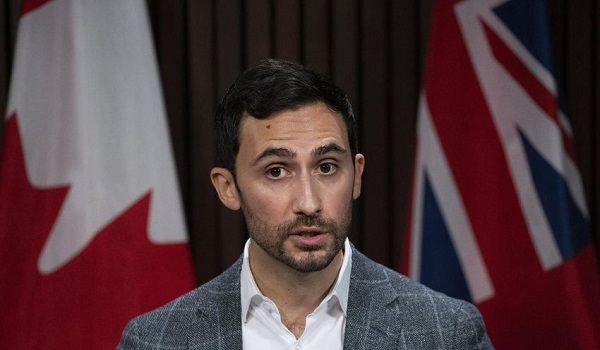Tuition hike for students could lead to job cuts, drop in enrolment, Quebec English-language universities warn
Quebec’s three English-language universities are warning that the government’s proposed tuition hike for out-of-province students would have dramatic financial implications that could lead to tens of millions in lost revenue, hundreds of job losses and a significant drop in student enrolment.
McGill University principal Deep Saini said in an e-mail to staff and students Thursday that the proposed near doubling of such tuition fees could mean “devastating consequences” for some faculties, including the potential suspension of sports teams.
Pascale Déry, Quebec Minister of Higher Education, and Minister of the French Language Jean-François Roberge announced earlier this month that starting next fall, fees for Canadians from other provinces will jump to around $17,000 from just under $9,000.
This would be among Canada’s highest undergraduate tuition rates for domestic students, raising fears that the measure would gut attendance at the province’s three English universities, McGill, Concordia and Bishop’s, which welcome more non-Quebec students than French institutions.
The Quebec government has presented the move as necessary to protect the French language and redistribute funds among the province’s higher-education institutions.
Dr. Saini said enrolment at McGill would drop as a result of the new policy. The university projects a range of outcomes that would likely include a decline in the number of students from other Canadian provinces. Some of those seats would be filled by international students, Dr. Saini said, but the university projects between 20 per cent and 80 per cent will go unfilled.
Tuition revenue at McGill is projected to decline by $42-million to $94-million a year. Some faculties, such as the School of Music, would be particularly hard hit, because their students come primarily from other Canadian provinces, Dr. Saini said.
He also mentioned the Faculty of Agricultural and Environmental Sciences and the Faculty of Education as potentially being “severely affected.” Some sports teams, which rely on athletes from other provinces, may be suspended or cut, he added.
The financial implications would mean a hiring freeze and the need for 650 to 700 job losses, Dr. Saini said, as well as additional spending cuts. The university said its cost to borrow has already increased since the government’s announcement and some infrastructure projects could be affected.
“We need all our universities to be strong for the economy to grow, to give us the means to promote French, to protect our culture and to maintain our enviable quality of life,” Dr. Saini said.
“To attract talent and investment to Quebec, to be influential on the global stage and to secure a bright future for generations to come, a great university system is essential.” he said. ”Additional investment is needed rather than changes that simply redistribute money throughout the system.”
Concordia University president Graham Carr said earlier this week that the government’s tuition policy would force a “precipitous decline” in enrolments from the rest of Canada. Concordia projects it could lose 65 per cent to 90 per cent of its students from other provinces. Within four years that would mean a loss of more than $32-million in revenue, Dr. Carr wrote in an e-mail to the campus community.
Further, a clawback by the province in international student revenue would mean another loss of around $30-million after four years.
“We have received no indication to this point that the government is prepared to reconsider its actions,” Dr. Carr said. “Nevertheless, we continue to seek open channels of communication with the government, working with our colleagues at McGill and Bishop’s.”
Bishop’s University in Lennoxville, the smallest of the three and the only one outside of Montreal, where the French-language concerns are centred, has said that its identity and financial sustainability will be put at risk by the tuition policy.
Ms. Déry said last month that raising tuition fees for Canadian out-of-province students means Quebec will stop subsidizing their education at a cost of more than $100-million a year. Some of this money, along with a lump sum taken from new international student fees, will be redistributed among French institutions.
Heads of the Universités du Québec network, composed of the UQAM in Montreal and other institutions across the province, said in an open letter last month focusing on international students that they support the redistributive measure.
French universities suffer from “chronic underfunding,” but “the impact of the increase in tuition fees for Canadian students outside Quebec remains to be assessed,” they wrote.
Simon Savignac, a spokesperson for Ms. Déry, declined to answer The Globe and Mail’s questions on the expected effect of the new policy for McGill and other English-speaking universities, saying he would address them Friday.
This article was reported by CTV News
















